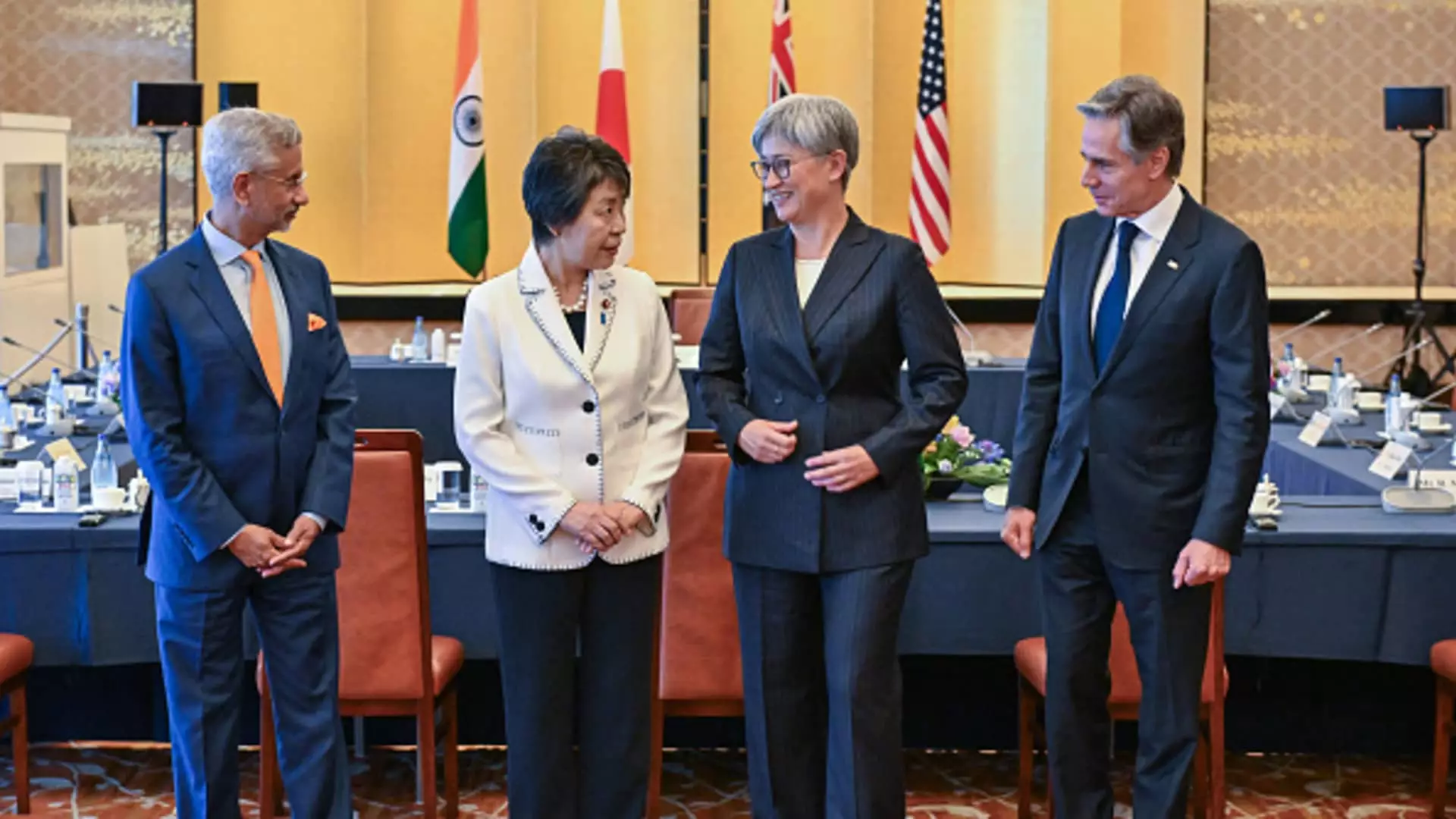In an era where global dynamics are rapidly changing, the foreign ministers of Australia, India, Japan, and the United States convened in Tokyo for a pivotal meeting on maritime security and cyber defense initiatives. This gathering, commonly referred to as the “Quad,” aims to fortify collaborative strategies to ensure stability within the Indo-Pacific region. The talks saw representatives, including Australia’s Penny Wong, India’s Subrahmanyam Jaishankar, Japan’s Yoko Kamikawa, and Antony Blinken from the U.S., addressing pressing security concerns, particularly in relation to the rising influence of China.
The Strategic Context
The discussions unfolded against a backdrop of heightened tensions and growing concerns regarding China’s expanding maritime prowess. Prior to the Quad meeting, Japan and the U.S. held security discussions where both nations characterized China as the “greatest strategic challenge” in the region. Recognizing that the geopolitical landscape is being significantly reshaped, Wong underscored the necessity of vigilance: “We all cherish the region’s peace, stability, and prosperity,” she remarked, emphasizing that these are not guarantees but rather hard-fought achievements that require continuous effort and cooperation.
Kamikawa, in her opening remarks, echoed these sentiments by spotlighting the urgent need to enhance cybersecurity capabilities. She advocated for training opportunities aimed at improving maritime security, acknowledging that a secure maritime frontier is essential for the economic prosperity of the Indo-Pacific. As cyber threats become increasingly prevalent, the Quad nations are tasked with not only fortifying their defenses but also ensuring that they have the capacity to respond to evolving challenges collectively.
U.S. Military Revamp and Regional Cooperation
In conjunction with the discussions, the U.S. announced its intention to revamp military command structures in Japan, signaling a commitment to deeper military integration between the two allies. This move is part of a broader strategy to adapt to an “evolving security environment,” aimed at confronting various challenges posed by China’s maritime aggressiveness in both the East and South China Seas. Blinken stressed the importance of not losing sight of the Indo-Pacific amidst global conflicts, highlighting the U.S. dedication to maintaining focus on the region that connects these four nations.
Looking beyond the immediate discussions, the outcomes of the Quad meeting may set the tone for future collaborations among these key democratic allies. Following the Tokyo meeting, Blinken’s agenda included security talks with the Philippines, reaffirming the Biden administration’s commitment to counteract China’s assertiveness. As the Quad countries continue to pursue a “free and open Indo-Pacific,” the intricate balancing act of regional security, economic prosperity, and cybersecurity will remain at the forefront of their collaborative initiatives. This strategic partnership is more than a mere response to immediate threats; it is an essential framework for navigating the complex landscape of international relations in the 21st century.


Leave a Reply